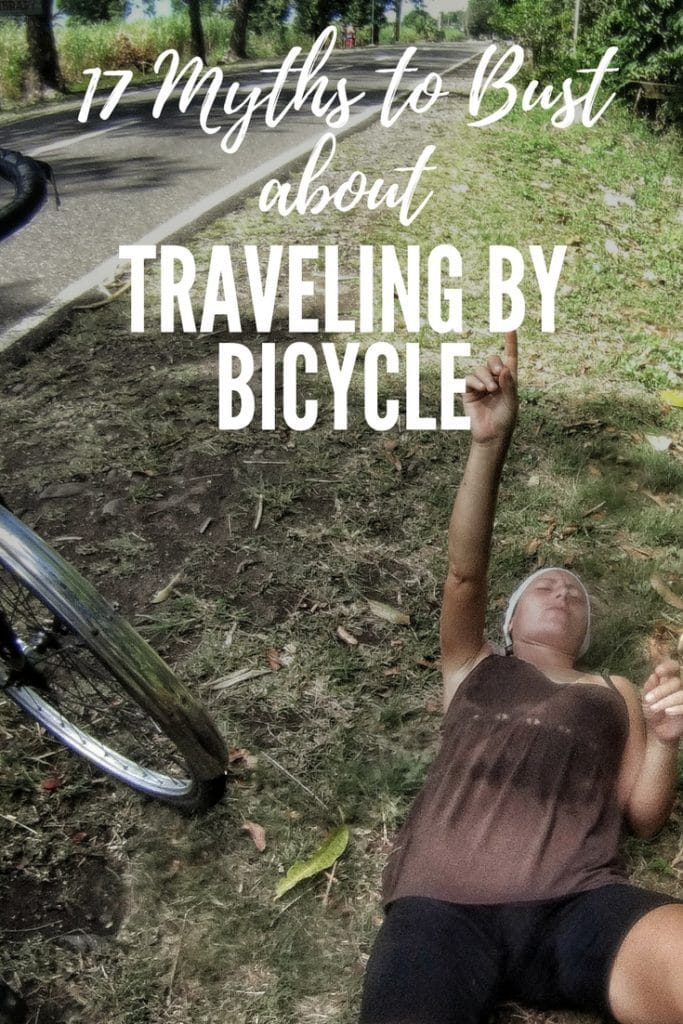Last Updated on 26 September 2024 by Cycloscope
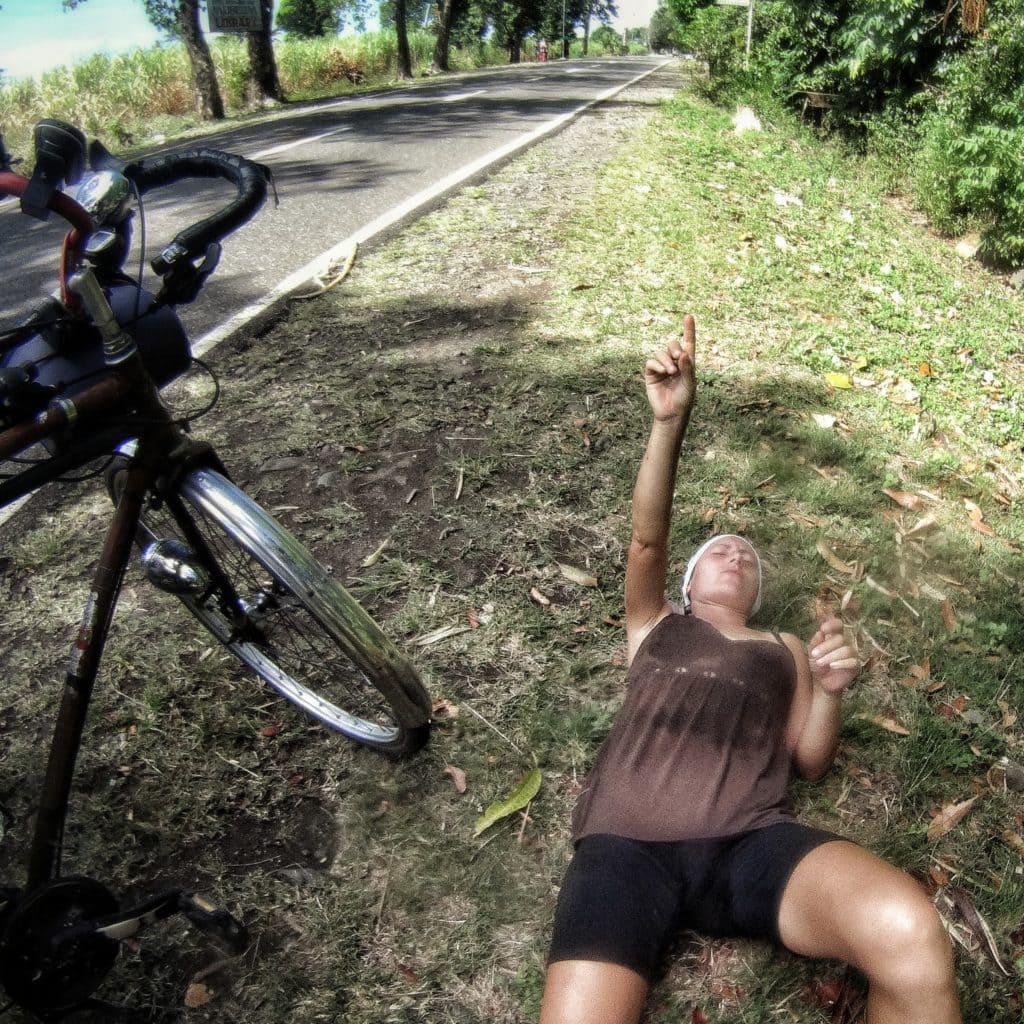
17 myths to bust about traveling by bicycle
[and a few that might actually be true]
Like everything else, there are a lot of false myths and cliches about bicycle touring, we asked the members of the most active Facebook group about the topic (Bicycle Touring and Bikepacking) about the most common myths about bike travel. We put together some of the answers and our thoughts and compiled this blog post.
Check also
30 rules (or advice) to follow when bicycle touring
How to get started with bike touring
The best touring bikes under 1,000$
The most common cliches about cycle touring
1. You need to be a trained cyclist to travel by bicycle
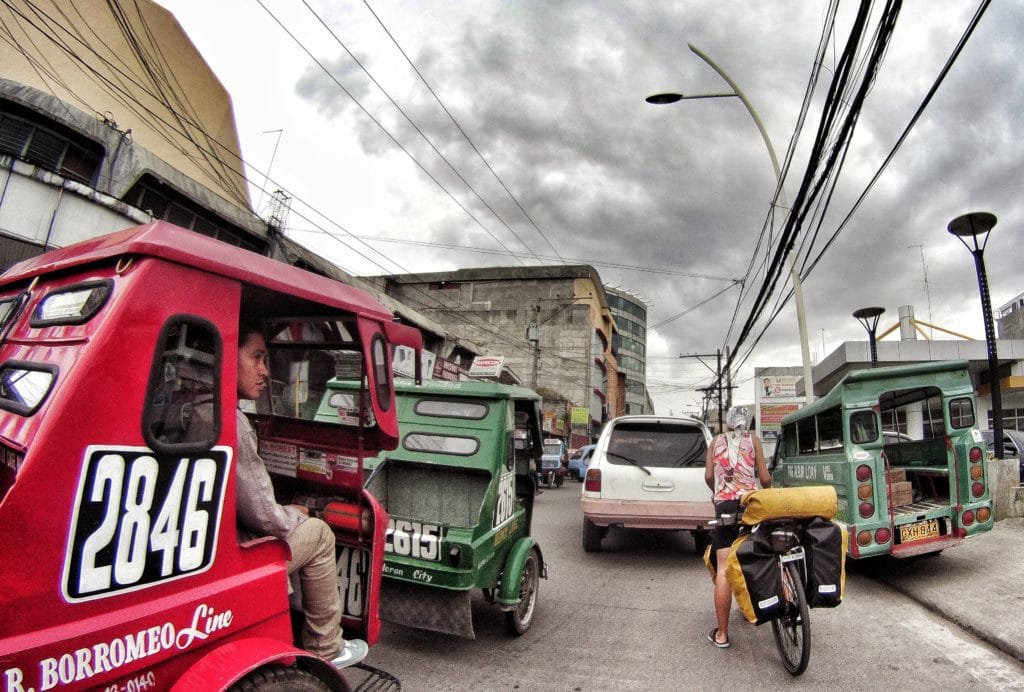
If that was true, we would’ve never ever even set off. When we started our round-the-world bike trip, neither of us had cycled more than a home-workplace ride. We did a few tests on longer distances before leaving Italy and we were stranded.
Less than one week into the trip, my knee failed and we had to stop for two days. But after that, we slowly adapted to the rhythm, starting with about 50km per day and slowly increasing up to 100km, before finding our own ideal daily cycling distance of about 75km. The physical shape comes from cycling, so just take it easy and don’t think you can’t.
2. You need a touring bicycle that costs at least $1000
While, of course, the better the bike the more enjoyable the ride, this is another absolutely false myth. My first 25,000km was done on a 1936 Royal Nord, a museum piece of a bicycle. Antique more than vintage. The President (that’s the name of the bicycle) wasn’t specifically designed for loaded touring, but it ended up handling it amazingly. Let’s also face another truth, the great majority of people won’t embark on multiple-year journeys, mainly weekend tours, everyday commuting, and once-a-year longer trips.
I like to say that every bike is a touring bike, as long as you tour with it. You can tour almost anything, of course, it will be a little harder, but doable. Besides that, if you have a small budget, there are many Touring Bicycles priced under 1,000 USD. If you have no budget, check this article about how to turn a free or cheap piece of junk into your next touring bicycle.
3. Everything will break and you’ll need a lot of money for spares and repairs
Another false cliché. Of course, mechanical failures can happen but we experienced very few of them during the last two years on a bicycle. The most expensive components are not the most resistant, often are the contrary. High-end components are designed for performance, not for durability, often low/middle key parts are more reliable than fancy ones.
So don’t worry, even if your derailer fails, you can buy a new Shimano Acera for about 15 bucks, and that will last another 20,000 KM. By the way, is good to be equipped for small repairs. Here’s a list of tools and spares you might want to bring on a longer bike trip.
4. You need all sorts of technical gear and expensive equipment
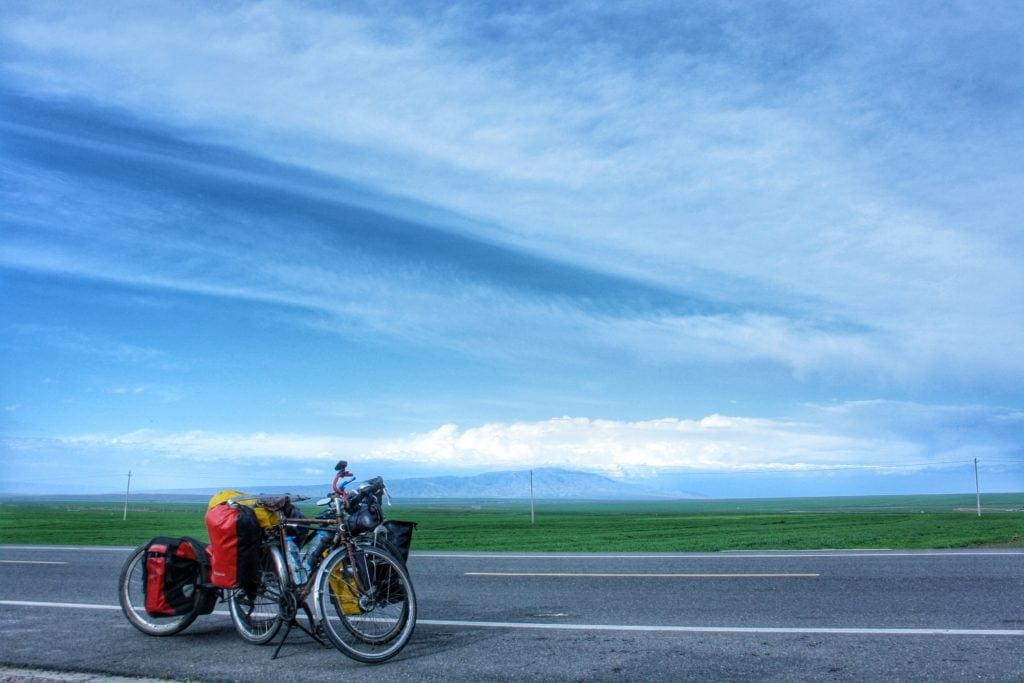
This might be true if an expedition to Kazakstan in winter is what you’re up to, but if you’re planning on warm-weather destinations don’t waste too much money on that, you can find lightweight gear without selling a kidney.
Of course, you will be more comfortable with high-end gear but don’t overthink that. A cheap tent and sleeping bag will be more than enough for most tours, cycling-specific clothes are not essential, and all the tech toys you might think of are just a (nice) luxury.
5. You must be very very brave
In all kinds of travels, there is a small component of bravery, leaving what you know to go where you don’t know, that’s all. It takes just a tiny bit of curiosity to overcome the travel fear, the hardest part is the first km, after that you won’t stop anymore.
For many people, the fear is related to free camping, for others to road accidents, for few to wild animals, and for most to bad people, which brings you to the next point.
6. People will kill you and do you all sorts of harm
Bad things happen, everywhere, but they are rare. Bad people exist, everywhere, but they are few. According to the media, we should stay at home. Even our governments, on their official pages, advise not to travel to a great number of countries.
We are bombarded every day by news of wars, murders, and violence. Looks like all the world is conspiring to harm you. When most of the media mentions “developing countries” is mostly to depict them as dangerous places.
Although it’s undeniably true that there is a lot of bad stuff going on on this planet, the world is still a fairly safe place to visit. If we take a look at the numbers, the amount of people intentionally harmed during their travels is ridiculously low.
From our personal experience, people from every country I was in, mentioned their neighboring nations as dangerous. Well, that’s the sad fruit of ignorance and sometimes racism.
When I said to my friends and family I was going to Asia, many were concerned about my safety, names like Kazakhstan, Cambodia, and Azerbaijan, raised perplexity among many: was I crazy going to do free camping in places like this?
7. You’ll be hit by a truck and die
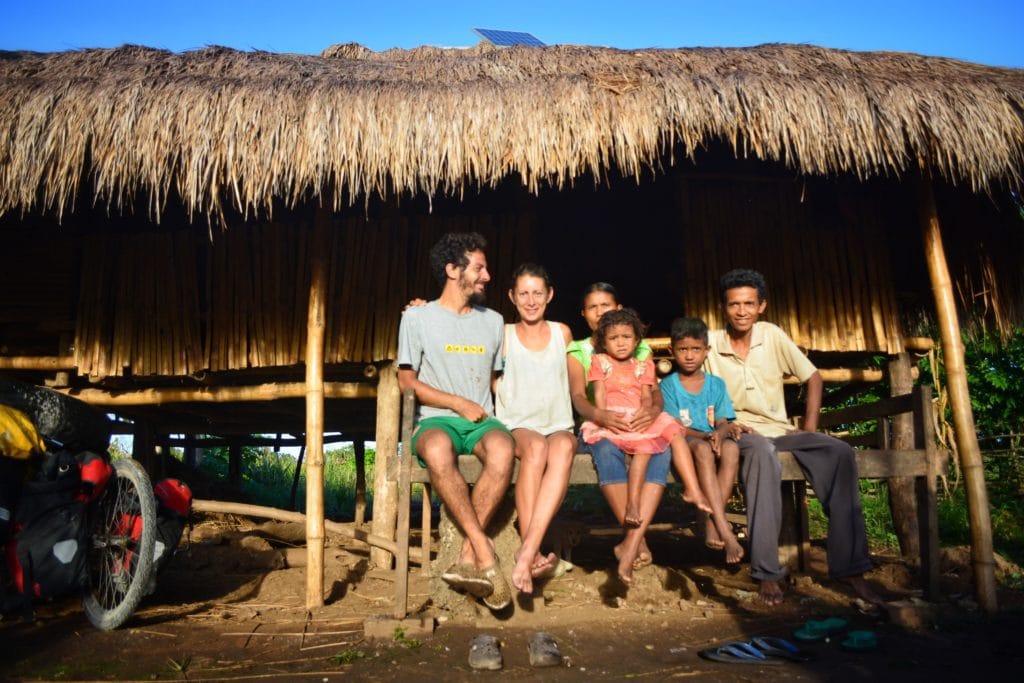
Safety on roads is a worldwide concern, every year many people die in road accidents, and they are the most common cause of death for young people. And yet, people still drive their cars and motorbikes every day. You don’t need to be on a road trip to be in danger, roads just suck in a lot of places.
You might argue that staying longer on the road raises the chances of accidents, well, it depends. Most of the accidents happen on busy roads, highways, and in cities, exactly the place that every sane touring cyclist tries to avoid the most.
When you travel by bike you’ll mostly be on secondary roads, with low traffic (or at least that’s what you should do, in my humble opinion), and the probability of accidents on these roads is much lower. Just remember to wear a helmet and don’t go too fast when riding downhill.
8. How do you cope with wild animals?
This is one of the questions I’m asked the most, seriously. It seems like people think it’s all jungle out there, but sadly it’s not. Even when cycling in Borneo, a place that evokes images of tigers and poisonous snakes, we met very few wild animals… mostly macaques.
Really there are few dangerous wild animals left in the world, and most of them are scared of humans, with good reasons. If when talking about wild animals you mean stray dogs, most of the time stopping and shouting will chase them away.
9. You must live a healthy lifestyle to go cycle touring
Of the large enough sample constituted by the many bike travelers we met on the road, plus those we know online, it seems the vast majority are beer lovers, while a vast minority (among which there is us) are also heavy smokers.
Bike travelers are not athletes, they are just the average Joe and Jane who ride their bikes to go from A to B. If you live a healthy lifestyle, good for you, you might go faster than us, but is that really important?
Moreover, cycle touring can have very positive effects on your body and even against stuff like mild depression, insomnia, and several other kinds of physical and psychological conditions. I’m not saying bike touring heals everything, for serious stuff you should get qualified help (have a look here), but it can probably help.
10. Cycle touring with toddlers is impossible (or crazily irresponsible)
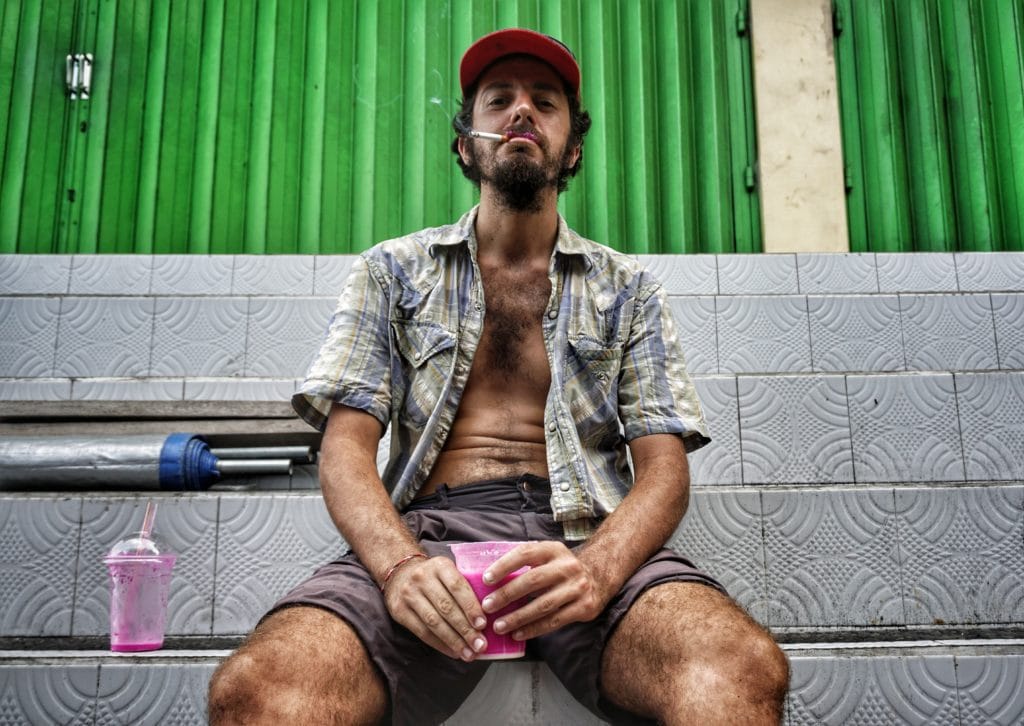
How often did we hear: “I really would like to travel by bike, but you know, the kids…”. Let me say that’s just bullshit. We met many people traveling with young kids, some even with babies, it’s totally possible and, according to them, great fun too.
You might have to give up some freedom to hit tougher roads and some miles per day, but all the kids we met were loving it. What better education might there be than seeing the world with your own eyes?
Some also embark on long-term travels with their kids, homeschooling them (road-schooling?) and stopping once in a while in various parts of the world, maybe volunteering in exchange for hospitality.
11. There are many ways to travel by bike, but this is the best
Bikepackers can’t understand why people carry all that stuff, fully loaded travelers can’t figure out how to fit everything they need in those tiny bags, those who travel self-supported often claim having a guide and a support car is not bike travel, and neither is using a pedelec (electric bicycle).
Some people travel alone and think this is the best, some love big groups, and some have dogs as companions. There simply is no single right way to travel by bike, to each his/her own. Just get on your bike and move.
12. Weight is everything, you should carry less stuff
It’s good to minimize your gear for a bunch of reasons, but the weight of your rig doesn’t have a huge effect on your tour.
Especially when it comes to your bike, you’re better off with a sturdy rig that absorbs and handles the bumps than a lightweight machine.
You should carry everything that makes you happy, if that’s an electric bass, go for it (thinking about this guy), if you wish to have a tailored suit to go to cocktail parties, why not?
13. What are you gonna do when you are done with your childish bicycle games? How will you find a job?
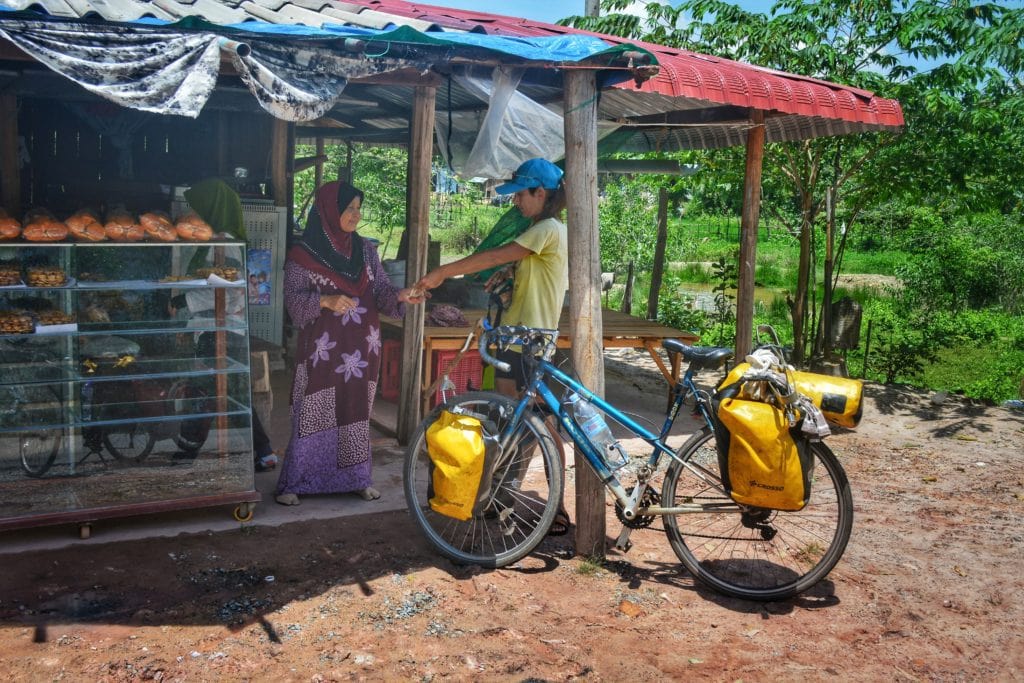
If there’s one thing bike traveling taught me (well, there are many actually) is that the world is full of opportunities. Before setting off on the big journey, I was struggling to find a decent job, suffering because I couldn’t make a living out of my passions, constantly compromising, and working for people I deeply disliked.
One of the first questions long-term travelers are asked is: don’t you think about your future, what are you going to do after this? Well, my advice is not to be concerned about this.
Since the beginning of my bicycle trip, I found more opportunities than I had found during my last decade in my home country. Traveling this way will put you in touch with lots of people, folk who might show you new ways of doing stuff, stuff you never ever thought about.
I met people who offered me jobs and business opportunities, I developed skills I didn’t have before, I had new ideas, and began picturing my future in a totally different way.
14. Bike travelers don’t contribute to the local economy, they don’t spend money and aren’t worth to be considered a resource for tourism
Actually, it’s exactly the opposite! Although cycle touring might be the cheapest way to explore the world (if done with that intent), bike travelers do not travel for free.
Instead of bringing all their wealth to the few tourist areas, leaving the rest of the country with a handful of lies, cycle tourers spread their money in much wider areas, contributing to the economy of remote areas that rarely see any visitors.
Some myths about bike touring that might actually be true
(at least in part)
15. Bicycle travelers never wash themselves
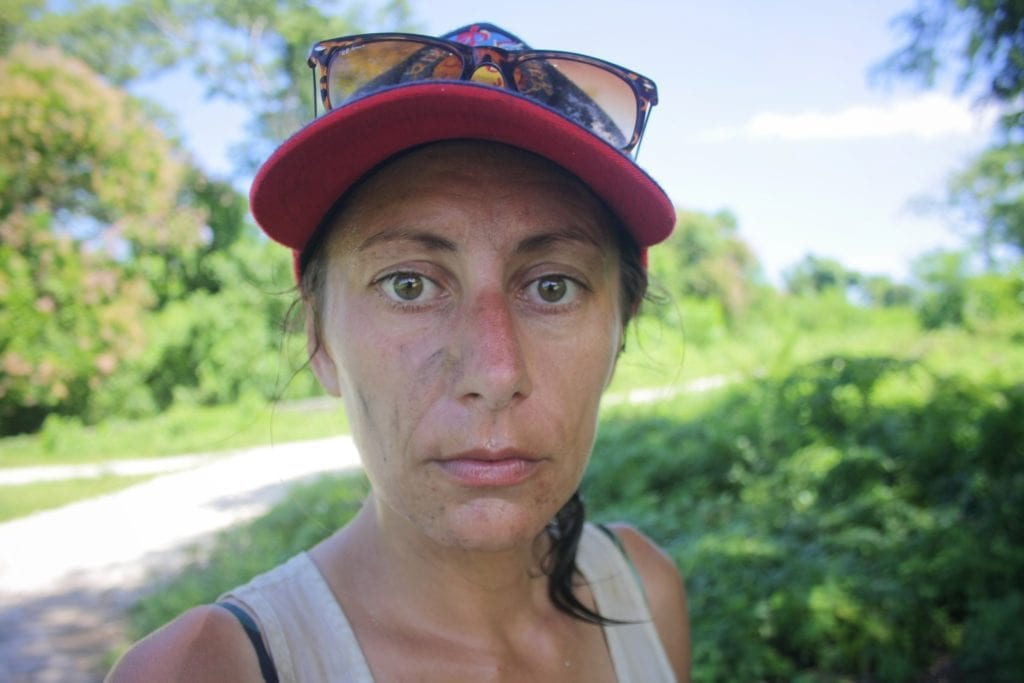
This might be true sometimes, but mostly it isn’t. If you’re constantly free camping it’s hard to get showers when the weather is cold (unless you’re in Japan, having cheap hot springs everywhere).
In warm weather though, it’s never too hard to wash yourself. Public toilets, rivers, streams, waterfalls, seas, and oceans are there to provide you with all the water you might need.
they don’t spend money here so the tourism agency need NOT care for what this unprofitable minority might want.
16. A bike trip will help you get rid of your bad habits and excess weight
Half true, half false. Before starting off for my world bike trip, I thought I would have quit smoking and drinking for sure, but that didn’t work. Although I certainly drink and smoke way less during cycling days, I hastily recover the lost time during rest days. At least that’s me.
A long bike trip is likely to help you get rid of your excess kilos only if you don’t eat junk, and cycle for a long enough time. But if you are back to the old fried shit once you stop, you’ll return fat again in no time.
What bike touring was great for, at least for me, was to regulate my sleep cycle. I sleep much better now, wake up earlier, and fall asleep faster.
17. Bicycle travelers are masochists
Well, some of us are, at least a bit. We like that bit of suffering, the fatigue, the sweat; because the satisfaction of reaching a goal with your own strength is something that can’t be bought. We all like easy rides also, but the tough times are usually those that make the best memories.
